
Light multihulls achieve high speeds downwind by running an asymmetrical spinnaker and flying it shy. By building up a high apparent wind (keeping the breeze that is felt either on or just forward of the beam) it is possible to carry the apparent wind direction forward. Very often the multihull will be heading well downwind (from the true wind) yet the apparent wind remains beam on.
The wide beam of multihulls enables traditional spinnakers to be set without a pole. By bracing the spinnaker with a line from each outboard bow and one from the middle hull (or beam) the spinnaker tack is variable in position.
A short spinnaker pole (termed a 'prodder') can be permanently mounted on the middle hull (or middle of a catamaran forward beam) to provide a rigid position for the tack. The advantage of this system is that there's only one line to tighten when setting the tack in most reaching positions.
It is an advantage to have the ability to pull the tack windward.
This is because in very light winds asymmetrical kites set from the mid-line will collapse or force you to sail way off course with a resultant poor velocity made good (VMG) downwind.
On high-performance multihulls, it's also possible to keep the headsail up when running under spinnaker. On racing yachts, there is a definite advantage to trimming and maintaining as much sail area as possible - the mainsail, the headsail and the spinnaker. To achieve this the sails should have efficiently mounted telltales and the crew should be aware of the need to work the sheets to maintain your multihull 'in the groove'.
The aim is to keep the apparent wind moving across the boat at about 90°.
In very light conditions run the lines inside the forestay so when the kite collapses the clew can be pulled through manually to the other side.
In every other wind level, run the lines outside the forestay.
この記事は Practical Boat Owner の Summer 2024 版に掲載されています。
7 日間の Magzter GOLD 無料トライアルを開始して、何千もの厳選されたプレミアム ストーリー、9,000 以上の雑誌や新聞にアクセスしてください。
すでに購読者です ? サインイン
この記事は Practical Boat Owner の Summer 2024 版に掲載されています。
7 日間の Magzter GOLD 無料トライアルを開始して、何千もの厳選されたプレミアム ストーリー、9,000 以上の雑誌や新聞にアクセスしてください。
すでに購読者です? サインイン

Orca sink yacht in Strait of Gibraltar
Spain's maritime rescue service, Salvamento Maritimo, has reported that a 15m (49ft) yacht sank in Moroccan waters in the Strait of Gibraltar following interaction with a pod of orca.

No kill cord or lifejackets were worn during fatal powerboat crash
A kill cord and lifejacket are useless unless worn-that's the warning from the Marine Accident Investigation Branch (MAIB), following its investigation into a powerboat crash that killed a 32-year-old woman and five-year-old girl on 2 October 2022.

Multihull sail work
Brush up on multihull sailing skills before heading off on charter with Gavin Le Sueur's guide to spinnaker handling, tacking and gybing

Five top causes of engine failure and how to prevent them
Jake Kavanagh talks to Sea Start marine engineer Nick Eales about how to avoid the five major causes of an engine breakdown at sea
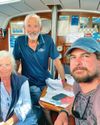
Sail the Atlantic with strangers
Would you sail across the Atlantic with someone you've just met? Ali Wood meets the cruising crews who've done just that
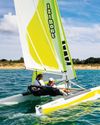
IZIBoat: simple sailing
Rupert Holmes sails an innovative catamaran design intended to widen participation in sailing among those with little time to get on the water in more conventional craft
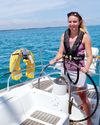
30 WAYS TO GET AFLOAT
From tall ships to small dinghies, you needn't own a boat to sail. Ali Wood looks at the options, and how skippers can also find crew
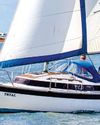
Boats for restoring under £20,000
Duncan Kent picks the best sub-35ft sail and power boats to look for when aiming to undertake a restoration on a budget
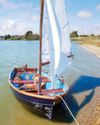
Seaworthy dinghies for less than £500
For low cost traditionally-styled GRP trailer-sailers, consider the Foreland and the Otter available at bargain basement prices
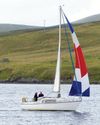
Playing with coloured sails
Maintaining an hourglass-shaped balloon and ratcheting up the log numbers